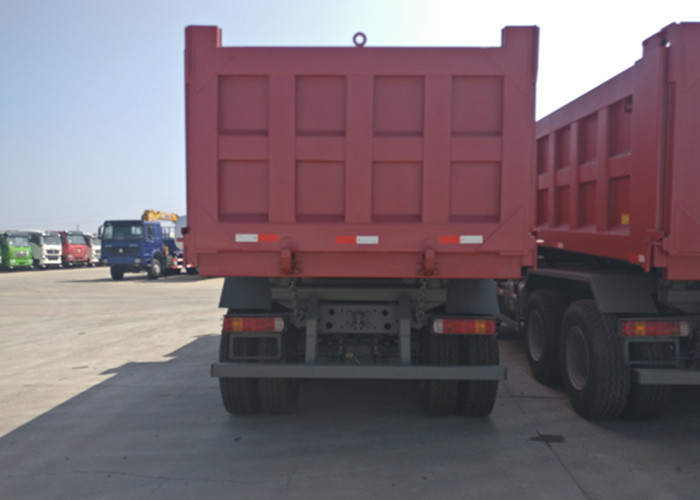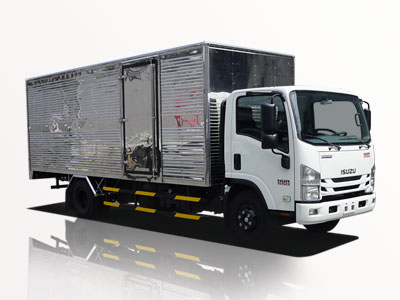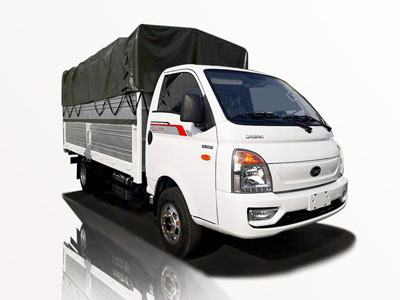Water tanks in trucks play a crucial role in various industries, including construction, agriculture, and firefighting. This comprehensive article will delve into the different types of water tanks used in trucks, their benefits, installation processes, maintenance, and much more. Understanding the functionality and importance of these tanks can enhance operational efficiency and safety.
Table of Contents
- Introduction
- Types of Water Tanks in Trucks
- Advantages of Water Tanks in Trucks
- Installation Process of Water Tanks
- Maintenance and Care for Water Tanks
- Applications of Water Tanks in Different Industries
- Choosing the Right Water Tank for Your Truck
- Cost Considerations for Water Tanks
- Safety Precautions When Using Water Tanks
- FAQ
Introduction
Water tanks in trucks have become essential tools for many professionals needing reliable and efficient water transport. Whether it’s for firefighting, dust control, irrigation, or construction, understanding the variety of options and their applications can help maximize their effectiveness. This guide aims to cover the most pertinent information about water tanks in trucks and equip readers with the knowledge necessary for making informed decisions.
Types of Water Tanks in Trucks
Understanding the different types of water tanks available is crucial for selecting the right one for your needs. Below are some of the most common types:
1. Plastic Water Tanks
Plastic tanks are lightweight, durable, and resistant to corrosion. They are often used in agricultural applications for transporting water and chemicals.
2. Steel Water Tanks
Steel tanks offer robustness and a longer life span compared to plastic tanks. They are more suitable for heavy-duty applications, including firefighting equipment and industrial uses.
3. Aluminum Water Tanks
Aluminum tanks are lightweight yet extremely strong, making them ideal for transporting large volumes of water without significantly increasing the truck’s weight.
4. Bladder Tanks
Bladder tanks are flexible tanks that can be easily stored when not in use. They are typically used for emergency water storage in firefighting situations.
5. Tanker Trucks
These are specialized trucks designed specifically for transporting water. Their tanks are usually made from either steel or aluminum and are often fitted with pumps for easy dispensing.
| Type of Tank | Material | Suitable Applications | Cost |
|---|---|---|---|
| Plastic Water Tanks | Polyethylene | Agriculture | Low |
| Steel Water Tanks | Steel | Industrial Use | Medium |
| Aluminum Water Tanks | Aluminum | Transport | High |
| Bladder Tanks | Flexible Material | Emergency | Medium |
| Tanker Trucks | Steel/Aluminum | Mass Transport | High |
Advantages of Water Tanks in Trucks
Water tanks in trucks offer various advantages that improve efficiency and functionality:
1. Versatility
Water tanks can serve multiple functions: they can transport water for irrigation, firefighting, construction, and more.
2. Increased Capacity
Having a dedicated water tank allows trucks to carry larger volumes of water compared to using smaller containers.
3. Time Savings
Trucks equipped with water tanks can quickly transport water to the required site, saving time in comparison to transporting water in smaller batches.
4. Improved Safety
These tanks are designed to prevent spills and leaks, improving safety during transport.
5. Cost Efficiency
Over time, having a water tank in your truck can reduce the costs associated with purchasing water from external suppliers.
Installation Process of Water Tanks
Installing a water tank in a truck involves several steps:
1. Assess the Truck’s Capacity
Check your truck’s weight limit to ensure it can handle the additional weight of a full water tank.
2. Choose the Right Location
Find an ideal spot for the tank installation, typically on the truck bed or chassis, ensuring it doesn’t obstruct any important components.
3. Secure the Tank
Use appropriate brackets and fastening methods to secure the tank firmly in place.
4. Install Water Lines
Connect the required hoses and fittings to allow for proper dispensing and filling of the tanks. Ensure that all connections are leak-proof.
5. Test the System
After installation, do a thorough test run to check for leaks and proper functioning.
Maintenance and Care for Water Tanks
Proper maintenance is necessary for extending the life of your water tank:
1. Regular Inspections
Conduct inspections for cracks, leaks, and corrosion every month.
2. Clean the Tank
Regularly clean the tank with appropriate cleaners to prevent algae and microbial growth.
3. Monitor Water Quality
Perform regular water quality tests to ensure the water remains safe for its intended use.
4. Drain When Not in Use
For tanks not used frequently, consider draining them to prevent stagnation and contamination.
Applications of Water Tanks in Different Industries
1. Agricultural Use
Agricultural water tanks are used for irrigation, transporting fertilizers, and pest control. Large tanks mounted on trucks can efficiently distribute water across extensive farm areas.
2. Firefighting
Firefighter trucks are often equipped with water tanks to allow for quick response to emergencies, providing an essential source of water for extinguishing fires.
3. Construction
In construction, water tanks can be utilized for dust control, concrete mixing, and site cleanup, ensuring compliance with safety regulations.
4. Municipal Services
Water tanks are employed in municipal services for street cleaning, sewage control, and landscaping in urban areas.
5. Food and Beverage Industry
Ensuring a dependable water supply is crucial in the food and beverage industry, with water tanks used for both production and sanitation purposes.
Choosing the Right Water Tank for Your Truck
Selecting the appropriate water tank involves evaluating specific factors:
1. Size and Capacity
Consider the volume of water you need to transport, and choose a tank size accordingly that fits your truck’s capacity.
2. Material
Select the material based on your usage needs. Plastic for light duty, steel for heavy-duty applications, or aluminum for weight concerns.
3. Features
Look for additional features like built-in pumps and filtration systems that can enhance functionality.
4. Budget
Factor in the overall cost, including the price of the tank, installation, maintenance, and any additional accessories needed.
Cost Considerations for Water Tanks
Investing in water tanks involves several cost considerations:
| Cost Factor | Estimated Cost Range |
|---|---|
| Tank Purchase Price | $500 – $2000+ |
| Installation | $200 – $800 |
| Maintenance | $100 – $500 (annually) |
| Water Quality Testing | $50 – $150 (per test) |
Safety Precautions When Using Water Tanks
Safety should be a priority when handling water tanks:
1. Training
Ensure that all personnel handling the tanks receive adequate training in safe handling practices.
2. Personal Protective Equipment (PPE)
Employees should wear appropriate PPE, including gloves and goggles, especially when dealing with chemicals.
3. Spill Control
Have spill control measures in place, including absorbent materials to manage any leaks or spills quickly.
4. Regular Updates
Conduct regular safety audits to ensure compliance with safety regulations and equipment functionality.
FAQ
1. What is the average lifespan of a water tank in a truck?
The average lifespan varies based on material: plastic tanks can last 10-15 years, while steel or aluminum tanks can exceed 25 years with proper maintenance.
2. Can I use a water tank for non-potable water?
Yes, many tanks are designed specifically for agricultural or industrial applications and may not be suitable for potable use.
3. How much does it cost to fill a water tank?
The cost varies by location and availability. Generally, it ranges from $0.002 to $0.03 per gallon, depending on your local water rates.
4. Are there regulations regarding water tank installation in trucks?
Yes, local regulations may apply. Always check with local authorities to ensure compliance with safety and environmental laws.
5. Can a water tank be mounted on any type of truck?
Not all trucks can support a water tank. Consult with a specialist to determine the suitability of your specific vehicle.
6. How often should I inspect my truck’s water tank?
Regular inspections are recommended at least once a month to check for leaks, cracks, or any other damages.



